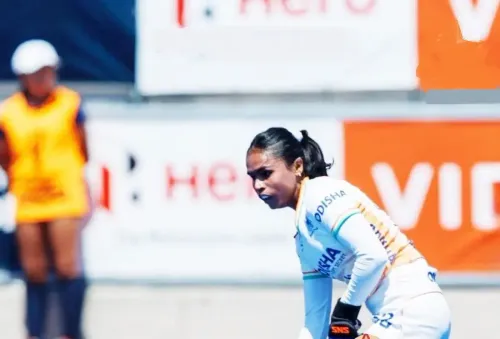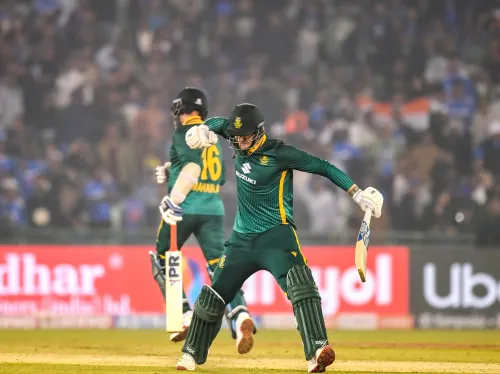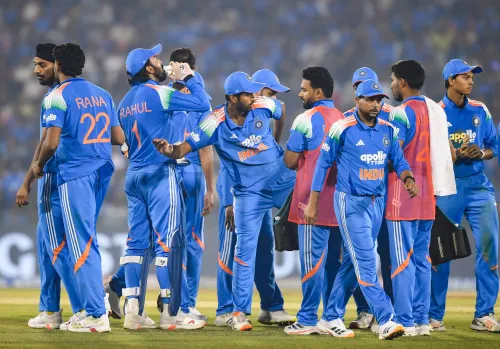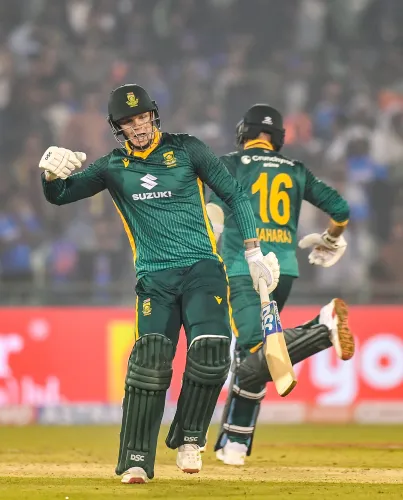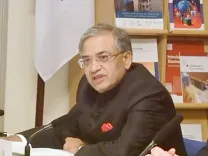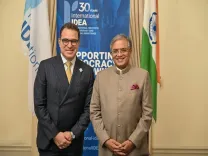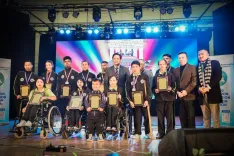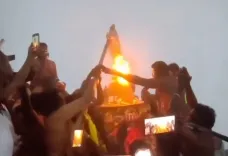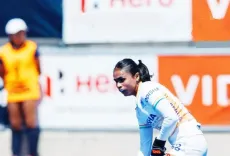Can Indian Shuttlers Achieve Individual Glory After Their Historic Team Bronze?
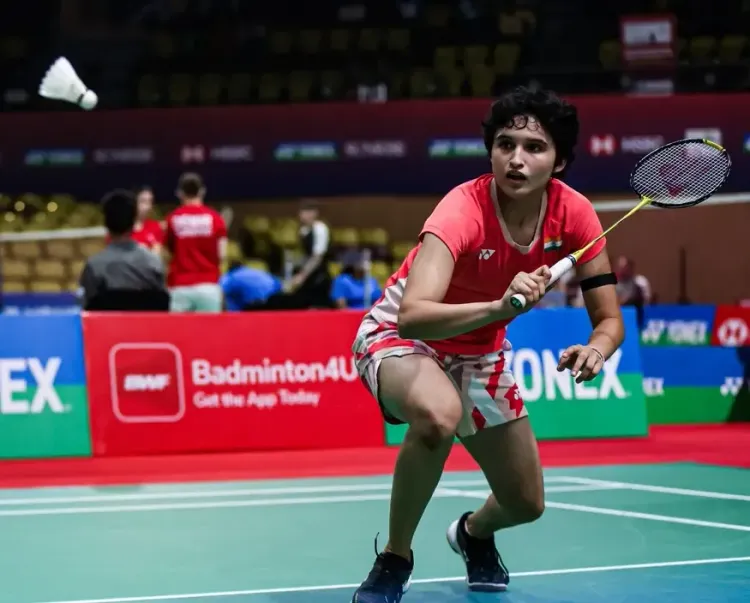
Synopsis
Key Takeaways
- Historic Achievement: India earned its first mixed team bronze medal.
- Top Contenders: Tanvi Sharma and Unnati Hooda lead the girls' singles charge.
- Challenging Matches: Indian boys face tough competition.
- Potential for Glory: India aims to add to its medal tally in individual events.
- Support the Team: The players need encouragement as they compete on the international stage.
Guwahati, Oct 12 (NationPress) Buoyed by their groundbreaking bronze medal achievement in the mixed team category, the Indian squad is now set to channel that energy into the individual competitions of the BWF World Junior Championships, commencing at the National Centre of Excellence on Monday.
India secured its inaugural mixed team bronze medal by defeating former champions Korea in the quarterfinals just this week, and the 25-member team is eager to leverage this momentum, aiming to accumulate as many medals as possible in the individual categories.
The country’s most notable performance in the BWF World Juniors dates back 17 years to Pune, where Saina Nehwal claimed gold in girls' singles and RMV Guru Sai Dutt earned bronze in boys' singles. To date, India has achieved a total of 11 individual medals in the tournament's history, including four silver medals.
This year's girls' singles event presents India with a prime opportunity to secure another gold medal, with junior world number one Tanvi Sharma and China Open quarterfinalist Unnati Hooda leading the effort. Both athletes are positioned in separate halves of the draw, raising hopes for a potential all-Indian final.
Tanvi, who is also the Asian U-19 bronze medallist, receives a bye in the first round but may face a significant challenge in the quarterfinals against Indonesian seventh seed Thalita Wiryawan.
Unnati, seeded eighth, is expected to begin her journey in the second round against Hong Kong's Liu Hoi Kiu Anna, with a potential quarterfinal showdown against second seed Anyapat Phichitpreechasak from Thailand.
Other competitors like Asian U-19 bronze medallist Vennala K and world number 41 Rakshita Sree are also placed in the same quarter, but they must navigate through several challenging matches to reach the semifinals.
Rakshita may encounter fourth seed Ranithma Liyanage of Sri Lanka in the pre-quarters, while Vennala will need to overcome her Asian U-19 semifinal opponent Liu Si Ya from China at the same stage.
For the boys' singles, the path to the medal rounds appears steeper, as Lalthazuala Hmar is likely to meet world junior number one and top seed Mohammad Zaki Ubaidillah of Indonesia in the round of 32, and 11th seed Rounak Chouhan faces a tough test against Li Zhi Hang from China.
Additionally, compatriots Gnana Dattu TT and 15th seed Suryaksh Rawat are expected to challenge each other in the third round.
In the doubles events, the former junior world number one boys' doubles team of Bhargav Ram Arigela and Viswa Tej Gobburu will kick off their campaign against Slovenia's Andrej Macek and Andrej Suchy. The sixth-seeded Indian duo is poised to face the reigning Asian Junior Champions Chen Jun Ting and Liu Jun Rong of China in the quarterfinals.
Bhavya Chhabra and Sumith A R will start their journey against Philip Kryger Boe, nephew of the former Danish doubles specialist Mathias Boe, and his partner Salomon Thomasen in the round of 64. Meanwhile, Vishnu Kode and Mithileish P Krishnan are set for a challenging match against the seventh-seeded French duo Thibault Gardon and Mady Sow.
The girls’ doubles team also faces a daunting challenge to reach the later rounds. Vennala K and Reshika U are poised to confront a tricky Japanese pairing in the round of 32, while Gayatri and Mansa Rawat will take on difficult opponents from China in the same round. Angel Punera and Aanya Bisht might encounter the fifth-seeded Korean duo Cheon Hye In and Moon Seo in the pre-quarterfinals.
In mixed doubles, C Lalramsanga and Taarini Suri along with Bhavya Chhabra and Vishakha Toppo are aiming to exceed expectations.
Lalramsanga and Taarini, who reached the Junior Grand Prix final in Pune earlier this year, are likely to face Japanese eighth seed Shuji Sawada and Aoi Banno in the third round. Meanwhile, 14th seed Bhavya and Vishakha will need to overcome the third-seeded French pair of Thibault Gardon and Agathe Cuevas in the pre-quarterfinals, as well as the sixth-seeded Thai duo of Pannawat Jamtubim and Kodchaporn Chaichana in the quarterfinals to remain in contention for medals.


